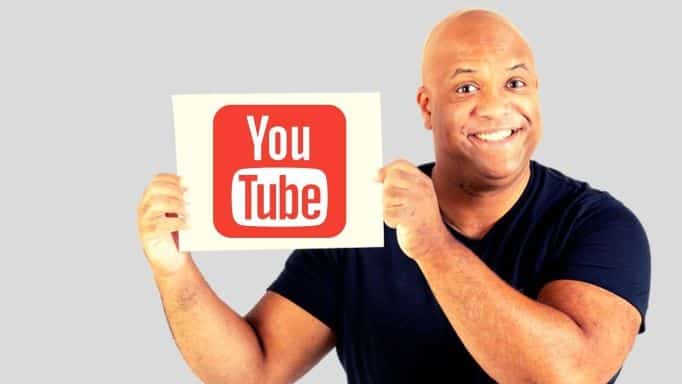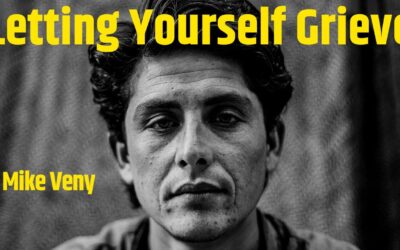
If you enjoy the video below, please like, comment, and subscribe to my channel!
Have you ever wondered how to actually include self-care in your life? I mean, it’s something that we hear about all the time, but how do you actually apply it to your life? By the end of this video, you are going to learn a formula that you can use every single day to apply self-care to your life for your mental wellness and emotional wellness.
My journey to becoming a mental health speaker evolved from my own struggles with mental health. I’ve been struggling with mental health challenges throughout my life, and I’ve had to learn tips, tools, strategies, and hacks to get me through the day and sometimes get me through the hour. I’m super excited to share these with you because they have helped me so much. They have made my challenges so much more manageable.
And oftentimes when people talk about self-care, a lot of people think different things. Some people think that means going to the spa or sitting there and just meditating every day.
What is self-care?
Self-care means different things to different people. And I’m going to talk a little bit about that, but most importantly, I am going to give you a formula that you can use to apply self-care to your life starting today. First, I would like to give you my definition of self-care.
Self-care is anything that you do to improve your health without the direct support of a healthcare provider. Now in our health journey, health care providers are important. They do play a role. A lot of times people become very dependent on them for their health needs, but there are things that you can do on your own that might actually reduce the need for a healthcare provider or make it easier to work with your healthcare provider and get the results you want out of your health.
That is what self-care is. What can you do on your own that’s in your control for your health?
Self-care formula
Here is a very simple formula that has helped me with self-care. I ask myself:
- What are things that I need to do for self-care in the morning?
- What are things that I need to do for self-care at the start of the Workday?
- What are things that I need to do for self-care at the end of the workday
- What are things that I need to do for self-care in the evening before bed?
Now, for me, this has meant really thinking through my whole day and what I need. And in the morning, one thing that is essential to the start of my day is meditation and exercise. I have to do my 20 minutes of meditation in the morning. It sets the tone for the day and on the days that I miss it, I really feel it. Even if the rest of the day goes well, I need my meditation. That’s something I do to quiet my mind, to get myself in a place where I’m grounded and I can face whatever comes up during the day. So that’s what I do in the morning.
And I also do some exercise. If I can’t get to the gym, I go for a walk. I make it a point to go for a walk. And the cool thing about that is I get to go out and get some fresh air. Those two things are really important for me to do now when I’m really struggling with depression, when it’s really, really heavy, sometimes I just can’t meditate, but I’ll at least try to go for a walk, and guess what? The walk might be for 10 feet outside of the house, but it’s still something.
So the key to doing self-care is to make the attempt and understand that sometimes you’re not going to do it at the level that you want to. And it’s important to have compassion for yourself when you don’t, that’s critical to this process when it comes to the start of the workday.
One of the things that I like to do for self-care is to organize my desk. And I actually have a little ritual where I choose three songs on Spotify and three songs that I want, and I purge, I purge, I get rid of stuff in my physical space to the point where my desk is completely clean as I’m looking at it right now. And also this might mean purging email and going through text messages and purging them. But I pick three songs based on my mood at the moment, whatever I want to hear. And I go through and purge. That’s how I start the Workday.
At the end of the Workday. I make it a point to set my goals for the next day and get my to-do list organized for the next day. That’s how I can end the Workday. And I’m not thinking about work after work. So that’s how I do that.
At the end of the day in the evening, I make it a point to practice a style of yoga called yin yoga. And when I do yin yoga, I hold poses for three to five minutes. And the cool thing about yoga is it allows me to release emotions. It’s a style of yoga that really helps you release anxiety, trauma, anger, and grief. So I get to do that at the end of the day, and it really sets me up for a more restful sleep.
So these are some ways that I take care of myself during the day. So just to review, you’ve got four areas that you want to focus on. Self-care in the morning, self-care at the start of the work day self-care at the end of the work day, and self-care in the evening. So I’d like to ask you right now, what is your favorite self-care activity to do each day? What is your favorite and why?
So I will definitely look at your answer in the YouTube comments and respond below and your answer might help someone else who’s watching this video and looking in the comments below.
Self-care in times of crisis
One final thing that I want to mention is that it’s important to have self-care activities that you can rely on when you are in crisis or really stressed out.
Here are three self-care questions that I ask myself when I feel like I’m on the verge of a crisis meltdown or getting really stressed out.
- “What am I feeling right now?” When I ask myself this question, I often can’t figure out what it is that I’m feeling, but just simply asking myself that gets me on the path to awareness about my emotions. And oftentimes there’s just so all over the place that I don’t know. But again, the awareness is the important thing. So sometimes you won’t have an answer to a question like that, but it’s a good thing to ask.
- “Where is the feeling located?” So I might not be able to identify a specific feeling, but I can usually point to where it’s located. Oftentimes for me, it’s in my chest or in my stomach, or sometimes actually in my neck too.
- “What do I need right now?” I call this the re-parenting question. So I get to be a parent to myself and do that when I’m struggling. So those three questions are, what am I feeling right now? Where is the feeling located and what do I need right now?
And that’s how I practice self-care when I am in crisis, or on the verge of a meltdown or just feeling really stressed out. Or I can use it randomly throughout the day. And what it does is it gives me something reliable to work with to help me when I’m struggling.
And that is ultimately the goal of self-care. Now that you understand a little bit more about self-care and how you can apply it to your life, how do you remember to do it? I have created a resource for you called The Ultimate Self Care Checklist.
RESOURCES & LINKS MENTIONED IN THIS VIDEO:




